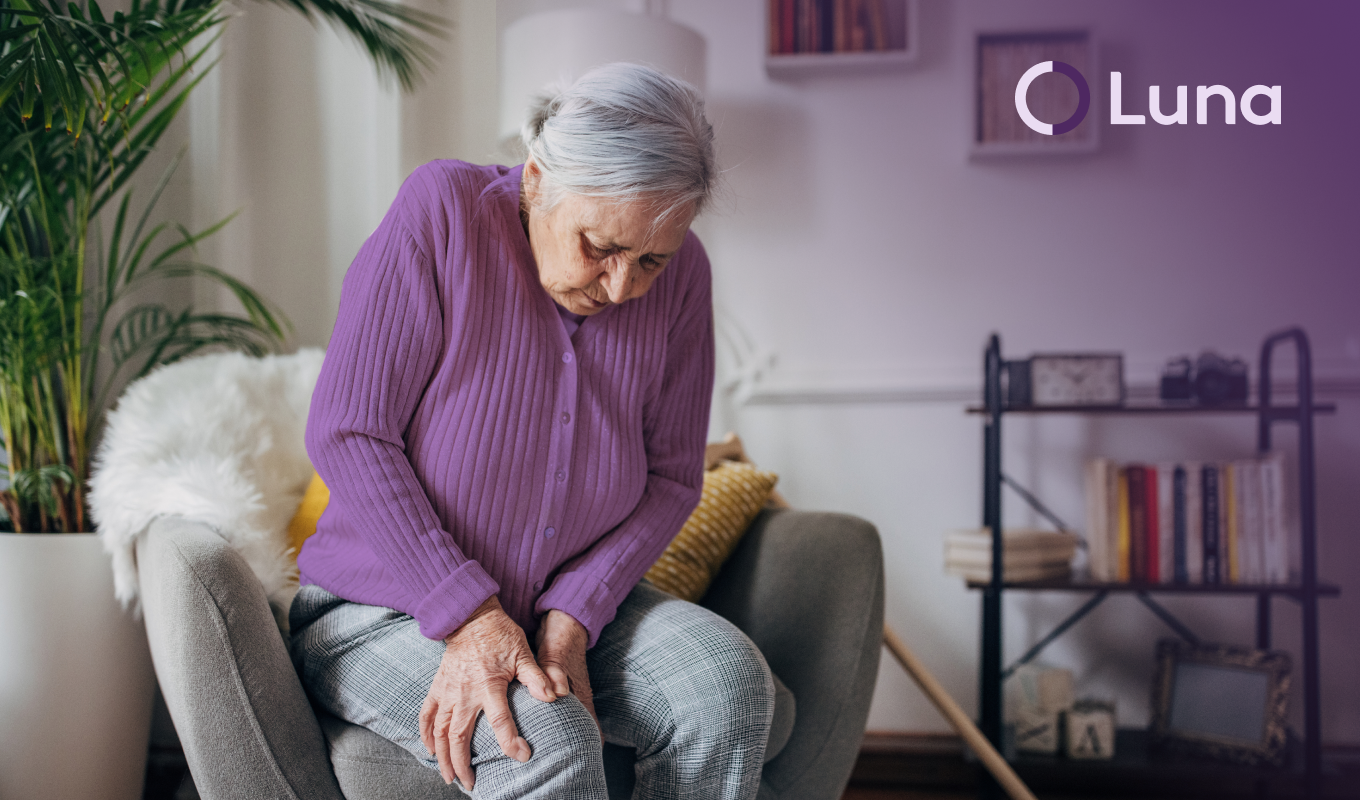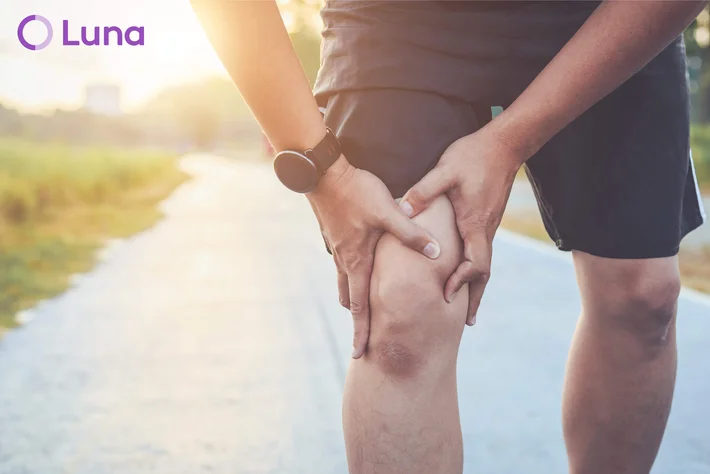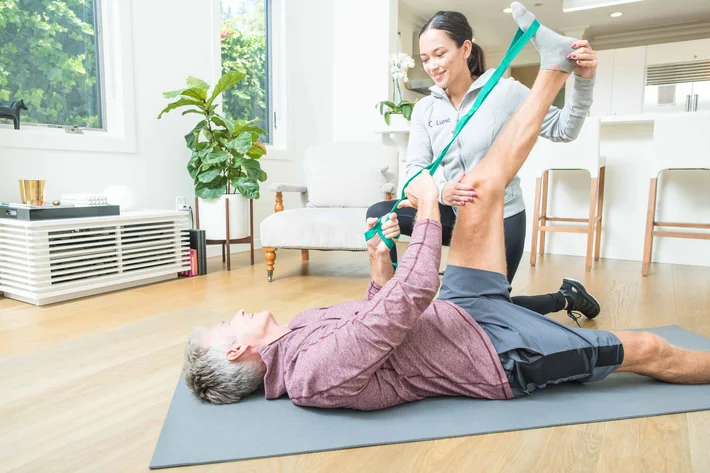
Meet with the best ACL reconstruction physical therapists in Edgewater, Maryland
Edgewater, Maryland, Luna’s physical therapists are experts in decreasing pain and increasing mobility after a torn ACL. Our licensed PTs will work with you to create a treatment plan that reduces pain and swelling, restores regular balance and motion, and decreases the chances of re-injury.
With Luna, patients can get ACL injury treatment in the comfort of their homes. It’s physical therapy, delivered.

What is an ACL injury?
The knee contains four main ligaments: the medial collateral ligament, the posterior cruciate ligament, the lateral collateral ligament, and the anterior cruciate ligament. The anterior cruciate ligament, or ACL, runs down the center of the knee, controlling rotation and forward movement of the tibia, and is vital for stable lateral motion.
An ACL injury, commonly called a “torn ACL,” occurs when the ligament either fully or partially tears. ACL injuries are common in athletes, especially skiers and soccer players, as sudden changes in speed or direction can tear the ACL. Contact sports can also put individuals at risk of suffering a torn ACL.
An ACL tear can result in severe pain, loss of range of motion, swelling, and inability to put weight on the affected leg. With the help of a brace, some patients may be able to walk straight ahead soon after an ACL injury. However, side-to-side motion will likely be much more difficult. Depending on the severity of the injury, patients may need surgery to repair a torn ACL. Whether or not they undergo surgery, rest and rehabilitation exercises are necessary for recovery.
Source: Mayo Clinic

What causes an ACL injury?
Most ACL injuries are caused by non-contact injuries that involve sudden stopping, changes in direction, or landing on one leg. The sports most commonly associated with ACL injuries include basketball, soccer, football, volleyball, skiing, lacrosse, and tennis. A direct blow to the knee can also cause a torn ACL.
Females tend to be at greater risk of tearing their ACL; year-round female soccer or basketball players have an annual ACL tear rate of nearly 5%. Patients who have previously torn an ACL are also at greater risk. The chance of tearing a previously-repaired ACL is 15% higher than the odds of a primary ACL tear.
The most common causes of an ACL injury include:
- Sudden stop or change in direction
- Landing on one leg
- Blow to the leg or knee
- A previously-torn ACL
















